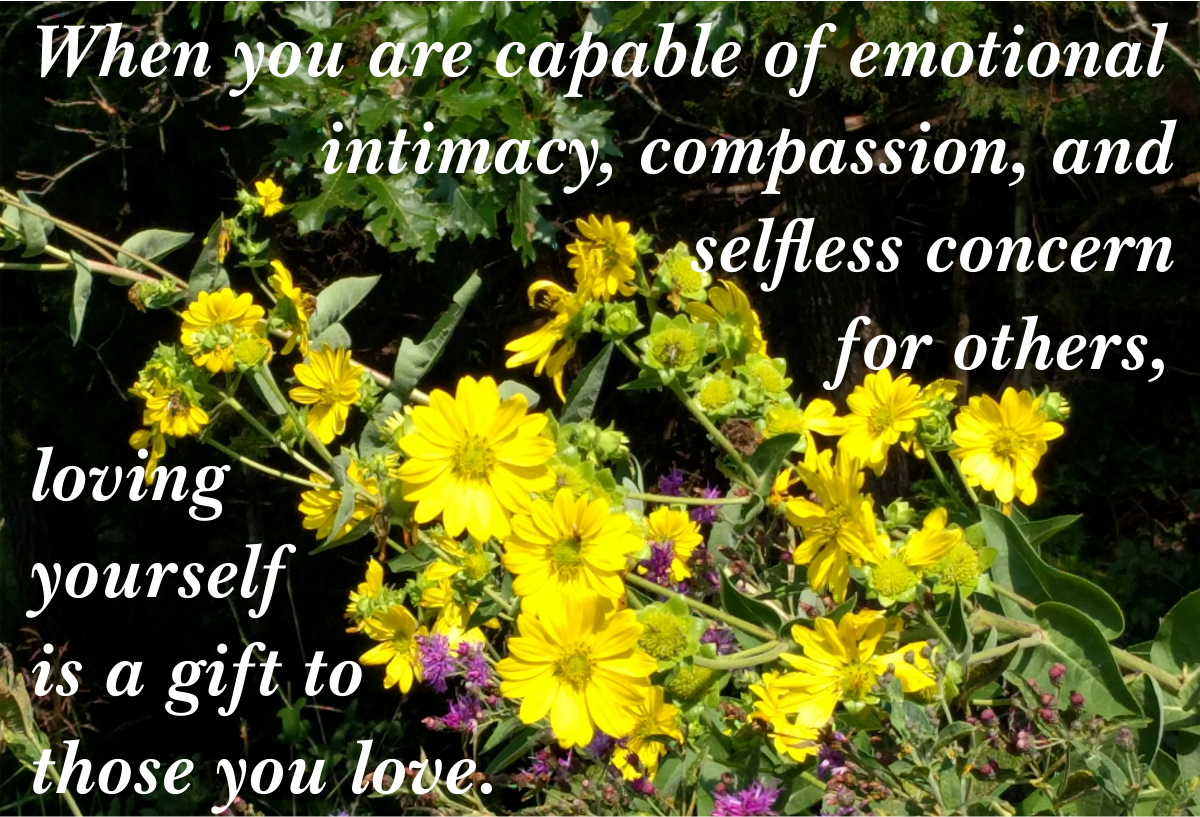September 27, 2017
Does Loving Yourself Make You a Narcissist?
by Monica A. Frank, PhD
“Doesn't loving myself make me selfish?” Often, those with low self-esteem believe that focusing on the self and their needs is selfish. Many of them may have been raised by narcissists who manipulated and demanded their love: “You are so selfish. You don't care about me at all!"
Yet, those who ask the question, “Doesn't loving myself make me selfish?” are those least likely to be selfish. A narcissist would never ask such a question because the question itself shows a concern for others.
The mental health profession advocates the importance of loving the self and the necessity of good self-esteem especially as a prerequisite for good relationships. Yet, narcissists seem to love themselves and apparently have high self-esteem but often have poor relationships. Obviously, something is wrong with this picture.
Primarily, the problem has to do with the definition of self-love and self-esteem. Self-love does not exclude the possibility of loving someone else no more than loving one child means a parent can't love another. Indeed, those with good self-esteem tend to have passionate relationships and are able to love selflessly. At the same time, they are less likely to feel the “lovesickness” (i.e. can't live without the other, intense excitement, “head over heels”) that those with low self-esteem frequently experience.
The difference for narcissists is that self-love means a focus on the self in order to benefit the self. For some narcissists, such a focus is to protect a hidden, but fragile self-esteem. For others, it is a genuine belief in their own superiority. Either way, the narcissist approaches love as a way of obtaining benefits from others with little interest in the partner's needs. To obtain these benefits of status, attention, and sex, the narcissist uses game-playing methods of manipulation, control and deception (Campbell, et al., 2002).
One might ask why anyone would want to be in a relationship with a narcissist. Yet, narcissists are often confident, extraverted, and charming. They frequently prey on those with low self-esteem who may be easily deceived until well into the relationship.
So, then, the answer is that fully loving yourself compassionately with all your strengths and weaknesses does not make you a narcissist. When you are capable of emotional intimacy, compassion, and selfless concern for others, loving yourself is a gift to those you love. Also, loving yourself makes you less vulnerable to becoming involved in a destructive relationship with a narcissist.
Campbell, W.K., Foster, C.A. and Finkel, E.J. (2002). Does Self-Love Lead to Love for Others?A Story of Narcissistic Game Playing. Journal of Personality and Social Psychology, 83, 340–354. DOI:10.1037//0022-3514.83.2.340
Copyright © 2017 by
Excel At Life, LLC.
Permission to post this article is granted if it includes this entire copyright
and an active link.
More PsychNotes
Relationships


























